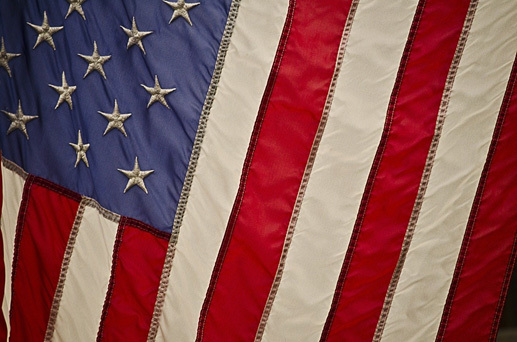The 9 Things That Actually Made America Great (Part 2)

Part 2: Improve Your Thinking, Change Your World
As mentioned in Part 1, America “became” great in the 60 years following the signing of the Constitution in 1787. During those years the size of our economy expanded by a factor of almost 20.
Pretty great, huh?
An interesting list of factors contributed to American’s incredible growth: industrial espionage, innovation, risk, job destruction, scarcity, political greed, objectivity, gold, and the survivor of a duel.
We will now discuss the remaining five factors to ideally help you improve your thinking by applying them to your career.
Scarcity
Starting in the 1820s, our big cities were illuminated by gaslight, but our delivery system (coal gas fed through a pipe network) was unavailable in America’s growing rural areas. Consequently, whale oil became the alternative to power those regions. However, even with over 700 whaling ships searching the high seas in the 1840s, whale oil became scarce (and VERY expensive). What to do?
Well, a curious chemist discovered that “petroleum” (Latin for “rock oil”) would work. One thing led to another, and on August 27, 1859, outside of Titusville, Pennsylvania, the first oil well in the world struck oil. And the rest, as they say, is history.
Apply To Your Work:
Scarcity is real, but it’s a problem that can be overcome with thought and hard work. What’s scarce in your organization? And how can that motivate you to find “other ways?”
Political Greed
Information is essential to company and country growth, and the ability to share information quickly and over great distances provides huge competitive advantages. It’s true now and it was true in the 1840s when Samuel Morse improved on an 80 year old invention: the telegraph.
While Morse had the knowledge the build his improved telegraph, he lacked the money to do so. And so it languished for six years, until he took on a new partner and received government help. His partner, F.O.J. Smith, just happened to be a member of Congress and the chairman of the House Committee on Commerce.
In 1843, Smith inserted a $30,000 appropriation into a bill in the “frantic final minutes” of a session. He then awarded himself (shocking, huh?) the construction contract to build a telegraph line from Washington to Baltimore.
Apply To Your Work:
We are not suggesting that you get in cahoots with a crooked politician, but sometimes we need outside (government?) help to proceed. What ideas do you have that are outside of your ability to execute by yourself? Go find (honest) help.
Objectivity
This may come as a shock to you, but in the late 1700s, most general-interest newspapers were “instruments of political factions.” They would regularly praise one party and denounce all others. They were basically editorial pages posing as news. CNN and Fox News are mild compared to the news sources of that era.
So, what was a truly objective person to do?
Well, James Gordon Bennett decided to publish a nonpartisan newspaper. The New York Herald was launched and quickly flourished. Soon he had correspondents in London, Rome, and Paris. Then he took advantage of the telegraph to connect the states and create a consortium of newspapers. By the time of the Civil War, the Herald was the largest and most influential newspaper in the country.
It seems that people wanted the facts so they could think for themselves.
Apply To Your Work:
Don’t live in an echo chamber where “someone” is telling you what to believe and how to think. Use objective facts and your own mind to draw your own conclusions.
Gold
In the mid 1800s gold was money. And the discovery of gold in California caused a massive movement of able-bodied men to travel west to strike it rich. But the impact on America was much greater than merely motivating a horde of treasure seekers.
In 1853, 120 clipper ships (i.e., fast ships) were launched to travel around the Horn of South America to bring men to California.
In 1850, there were about 9,000 miles of railroad trackage in the U.S. Ten years later there were almost 31,000 miles and 360 publicly traded railroad stocks.
Apply To Your Work:
When it comes to your business, look for the ripple effect of today’s “gold.” How can you take advantage of analytics, big data, and the Internet of Things? How can you and your company “become great?”
The Survivor Of A Duel
This story is not so much about making America great, but an interesting piece of history that led to a present day successful company.
Aaron Burr and Alexander Hamilton fought a duel in 1804, and as you may know, Burr won. But you may not know that Burr founded the Bank of the Manhattan Company. The bank is still in existence, but today we know it as J.P. Morgan Chase.
No lesson here except that history takes quirky turns at times.
How To Improve Your Thinking
The MindPrep Resource Center helps middle managers succeed in their careers. With over a century of relevant business experience, our team is ready to improve the way you think so you can progress in your career and be the catalyst for positive change and growth in your company. Our library of workbooks, mini-courses, and workshops will provide the solutions you need to be a leader in your business.
